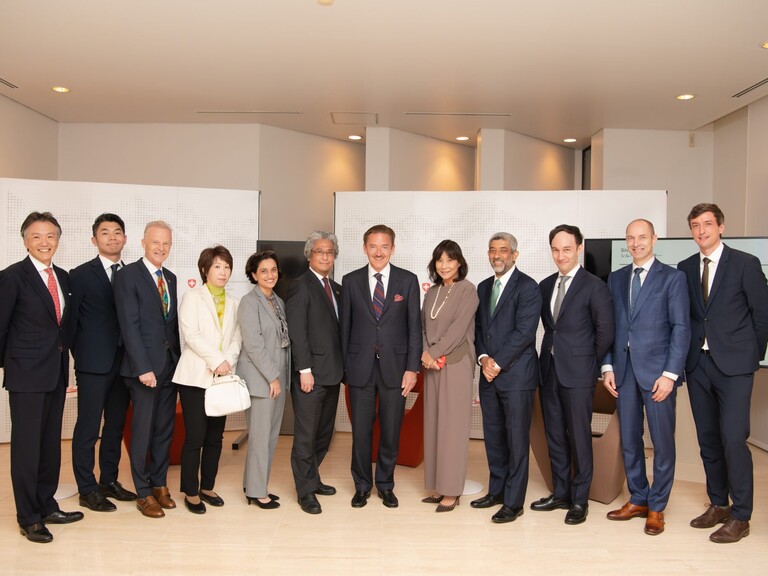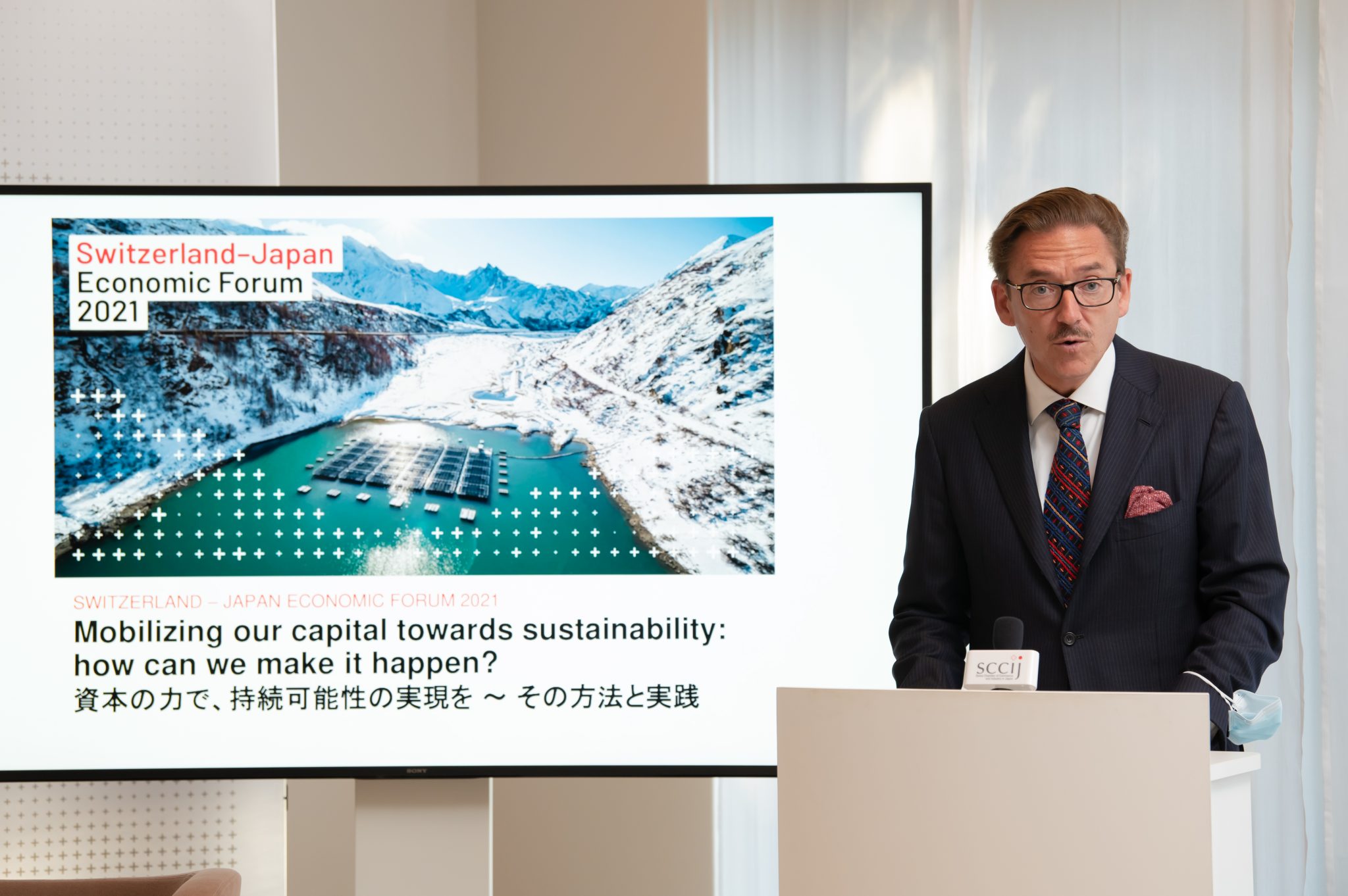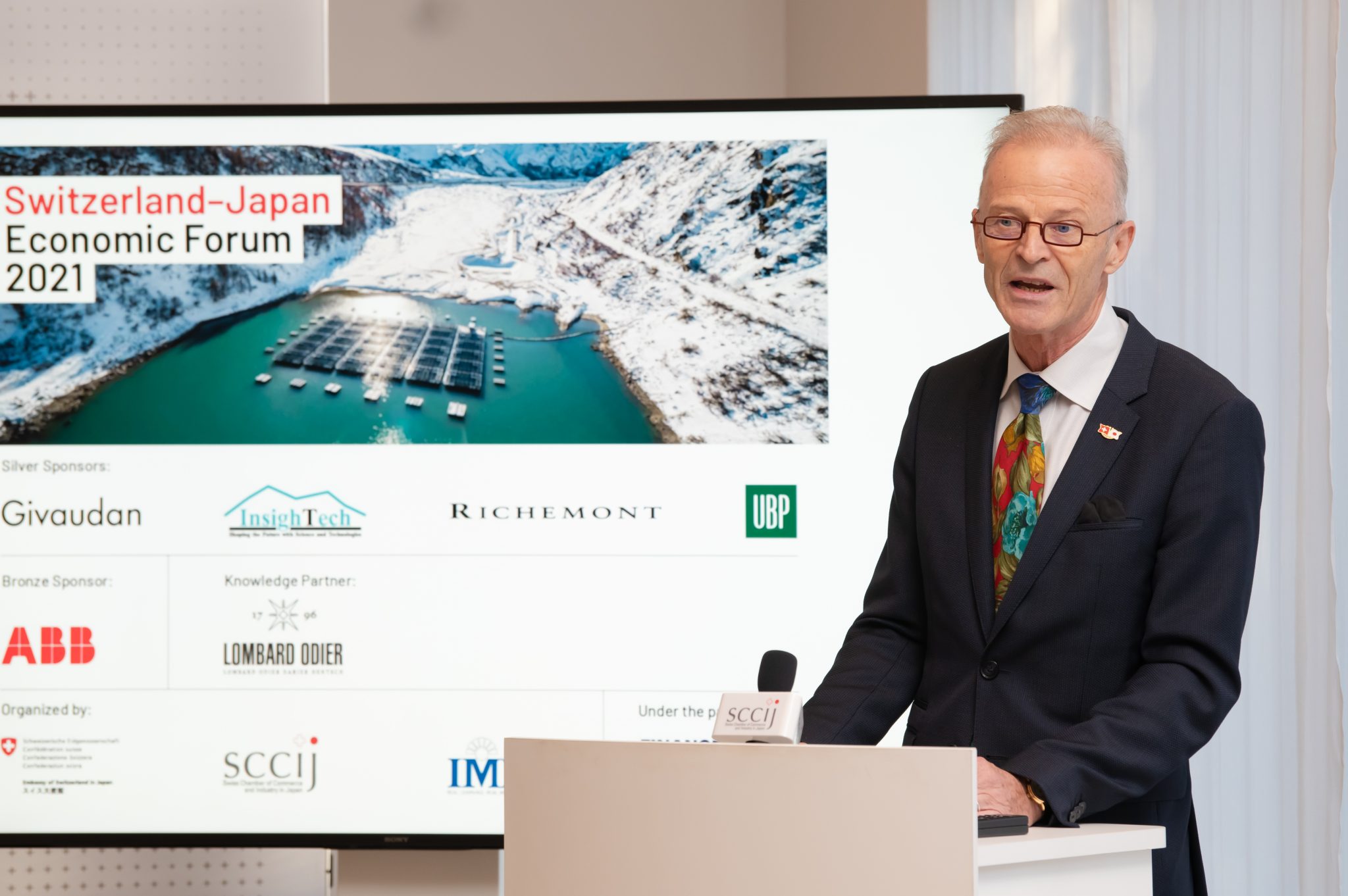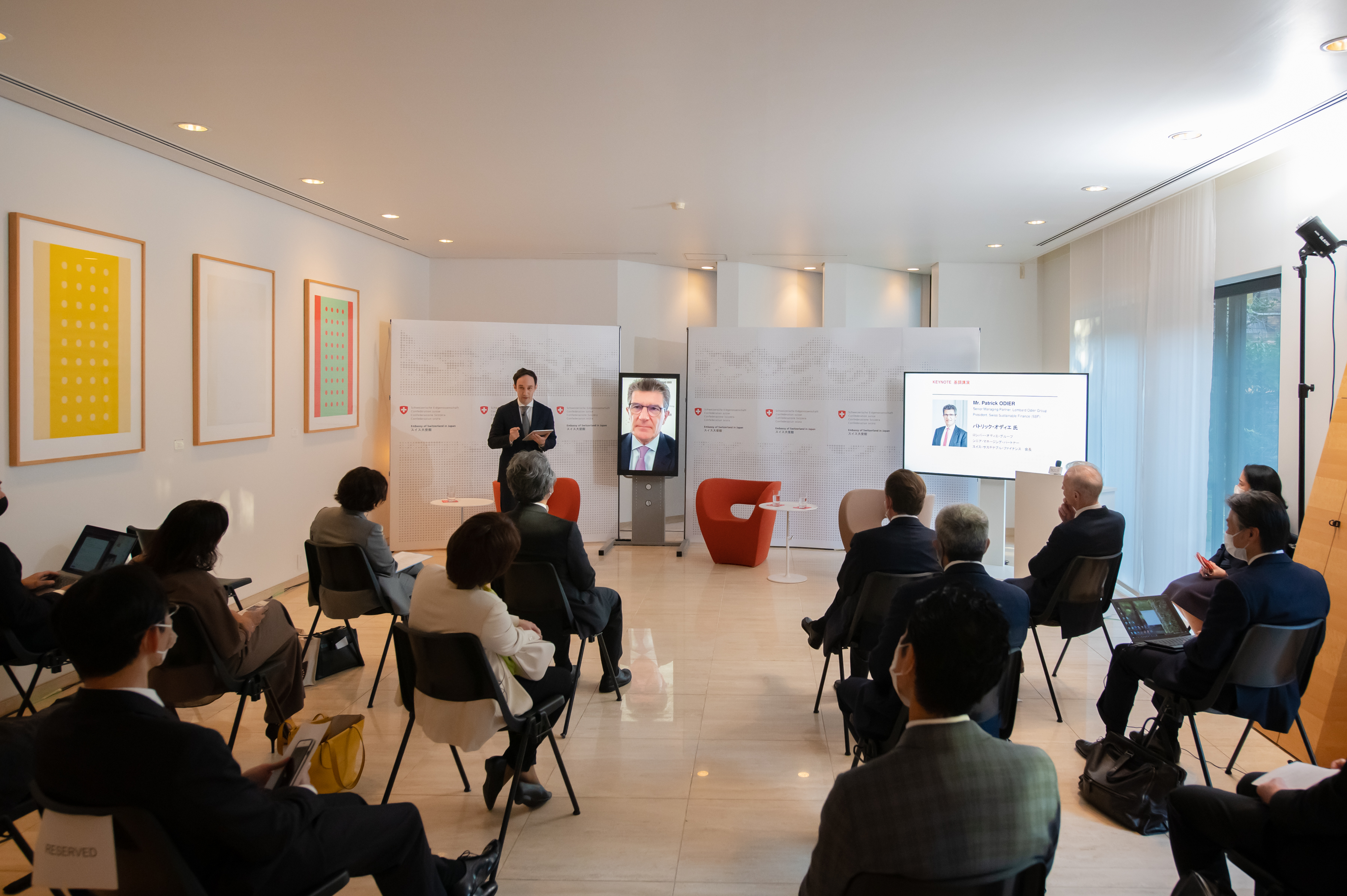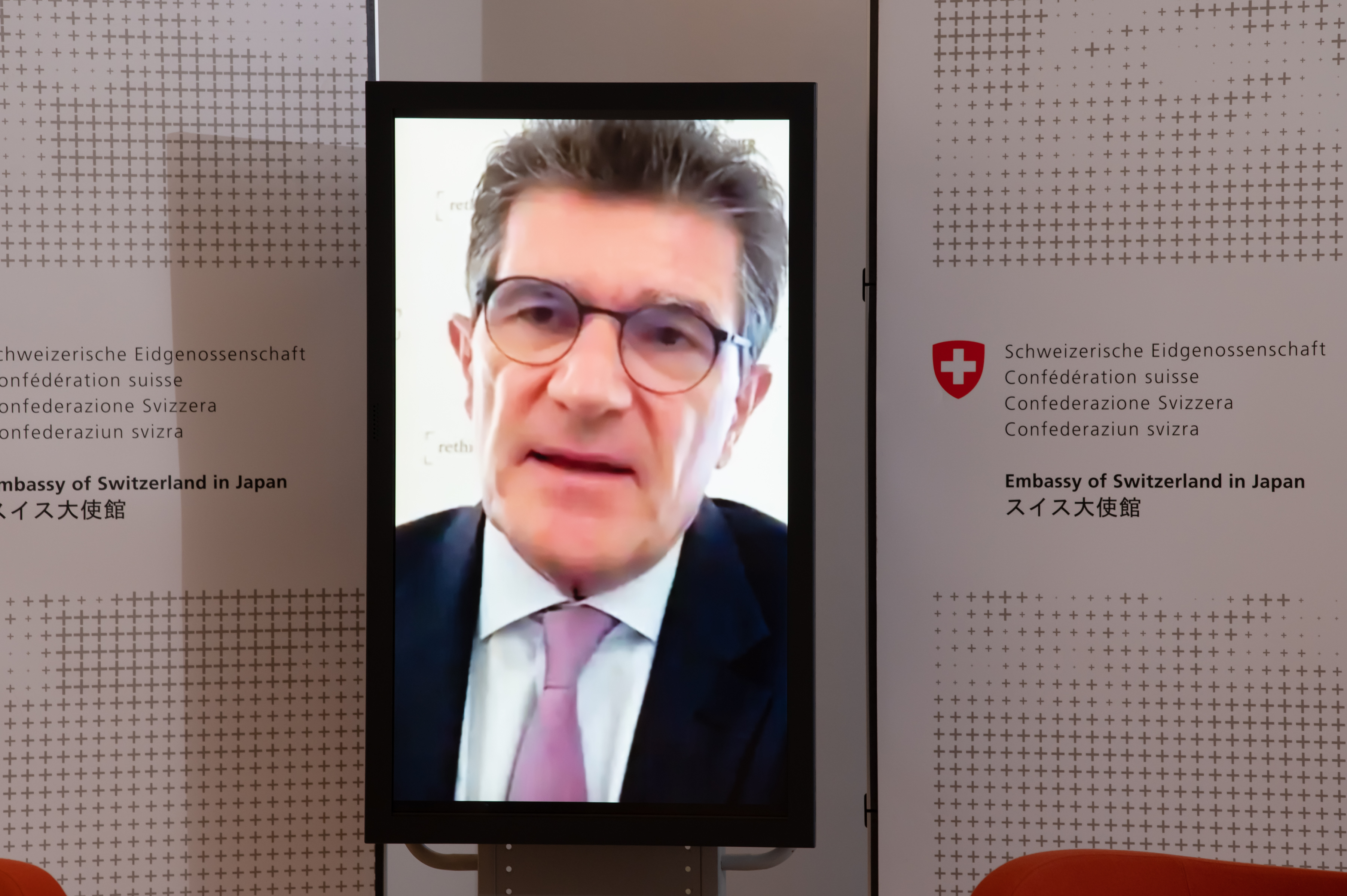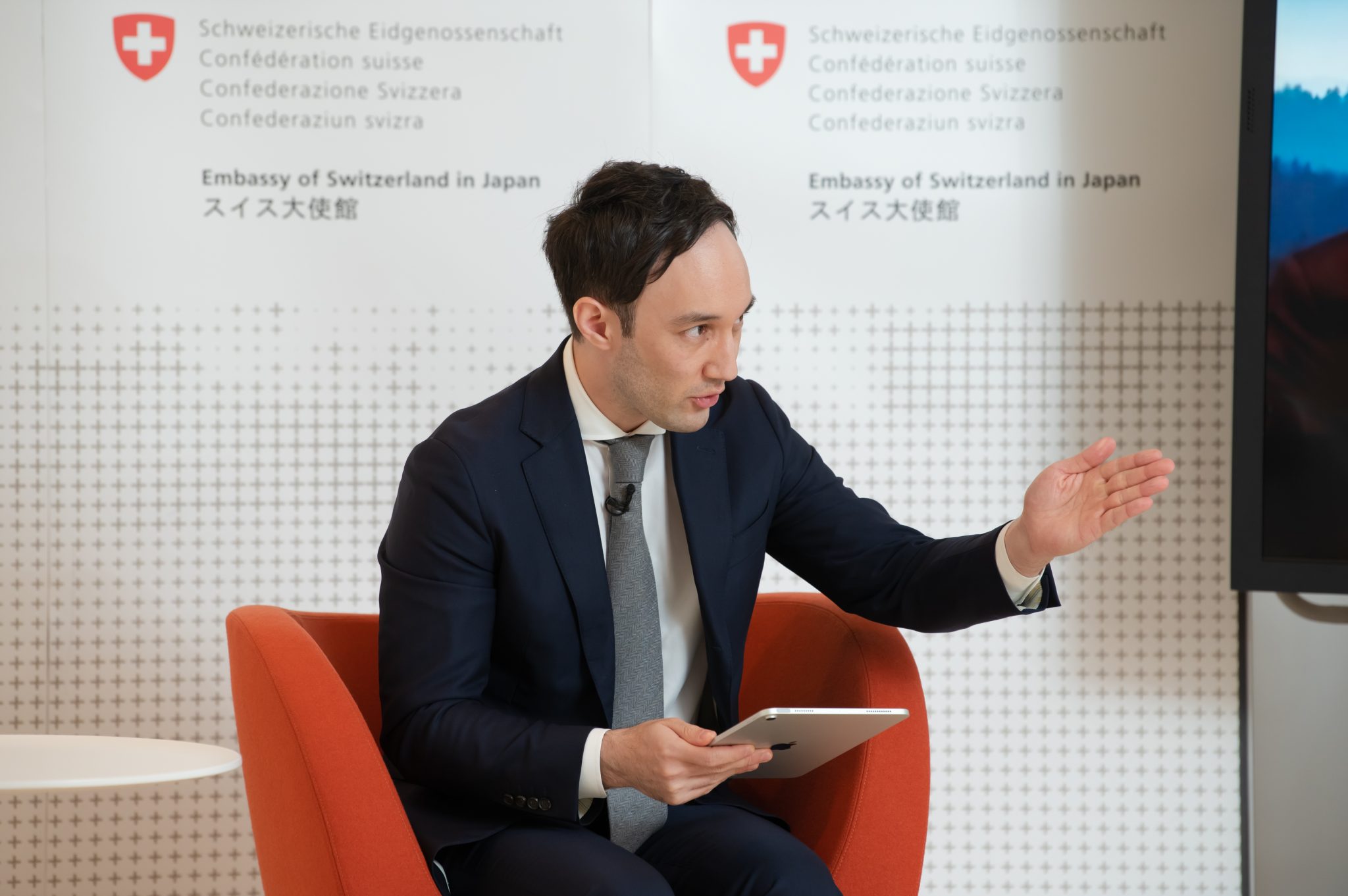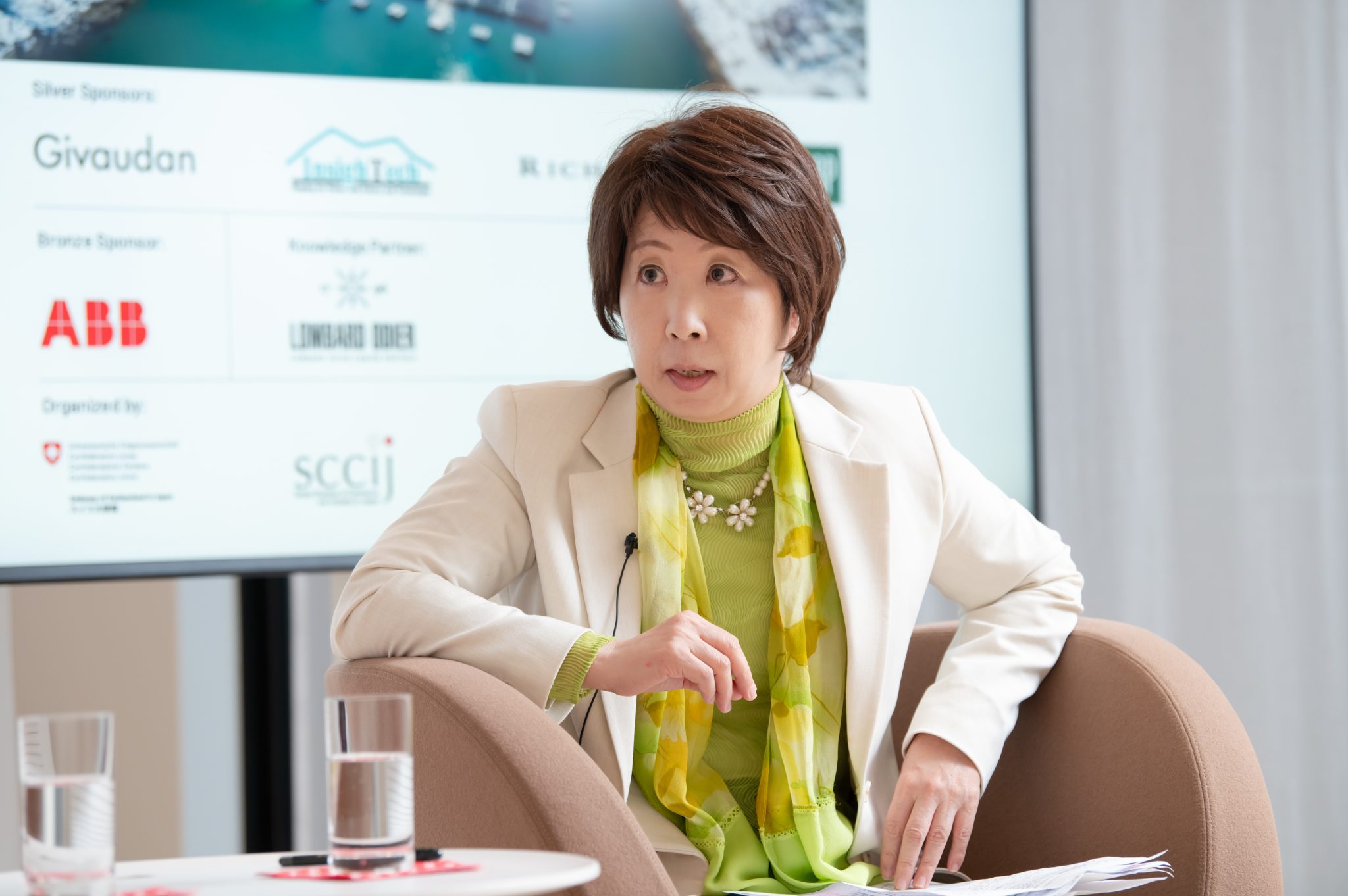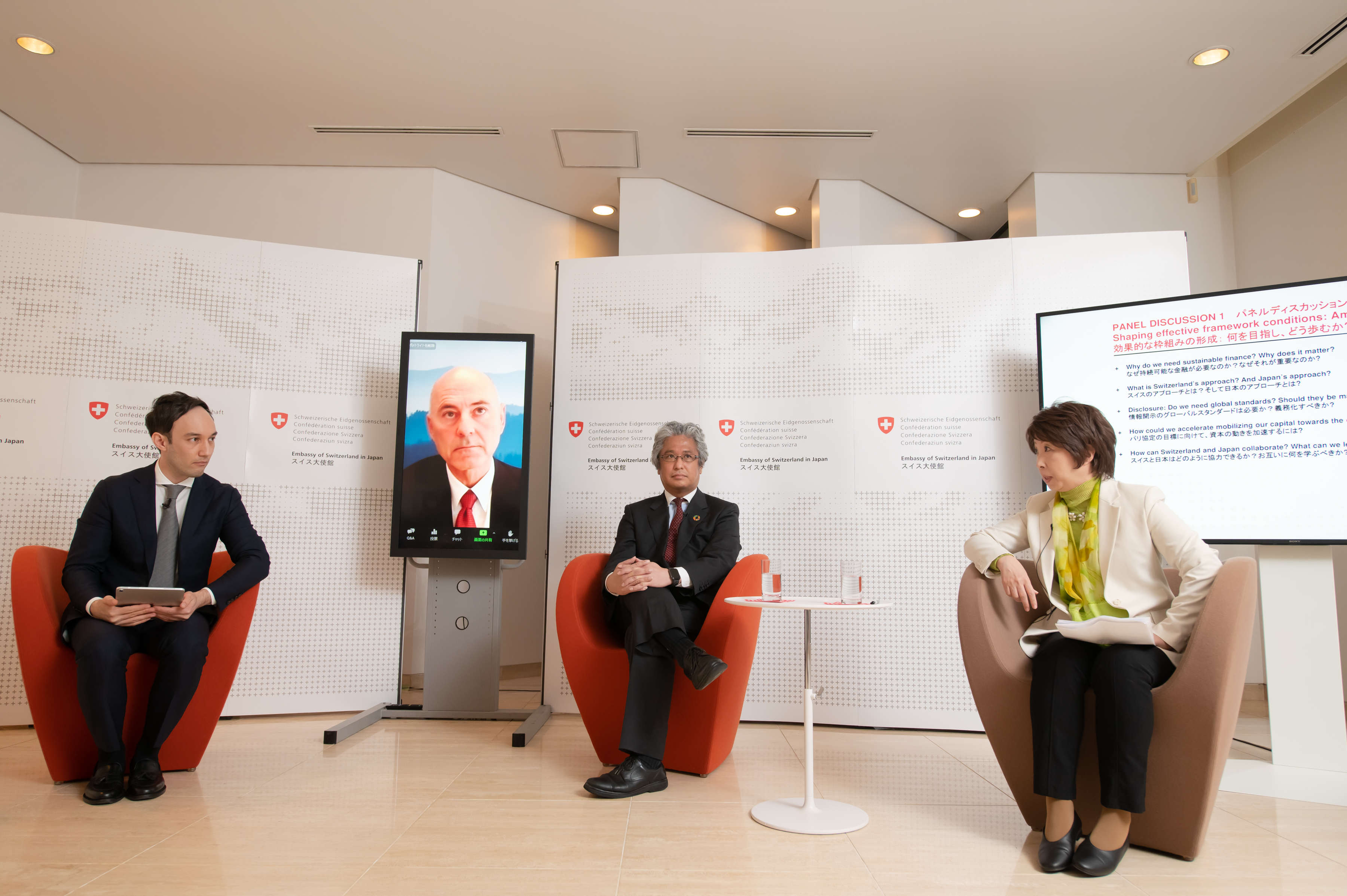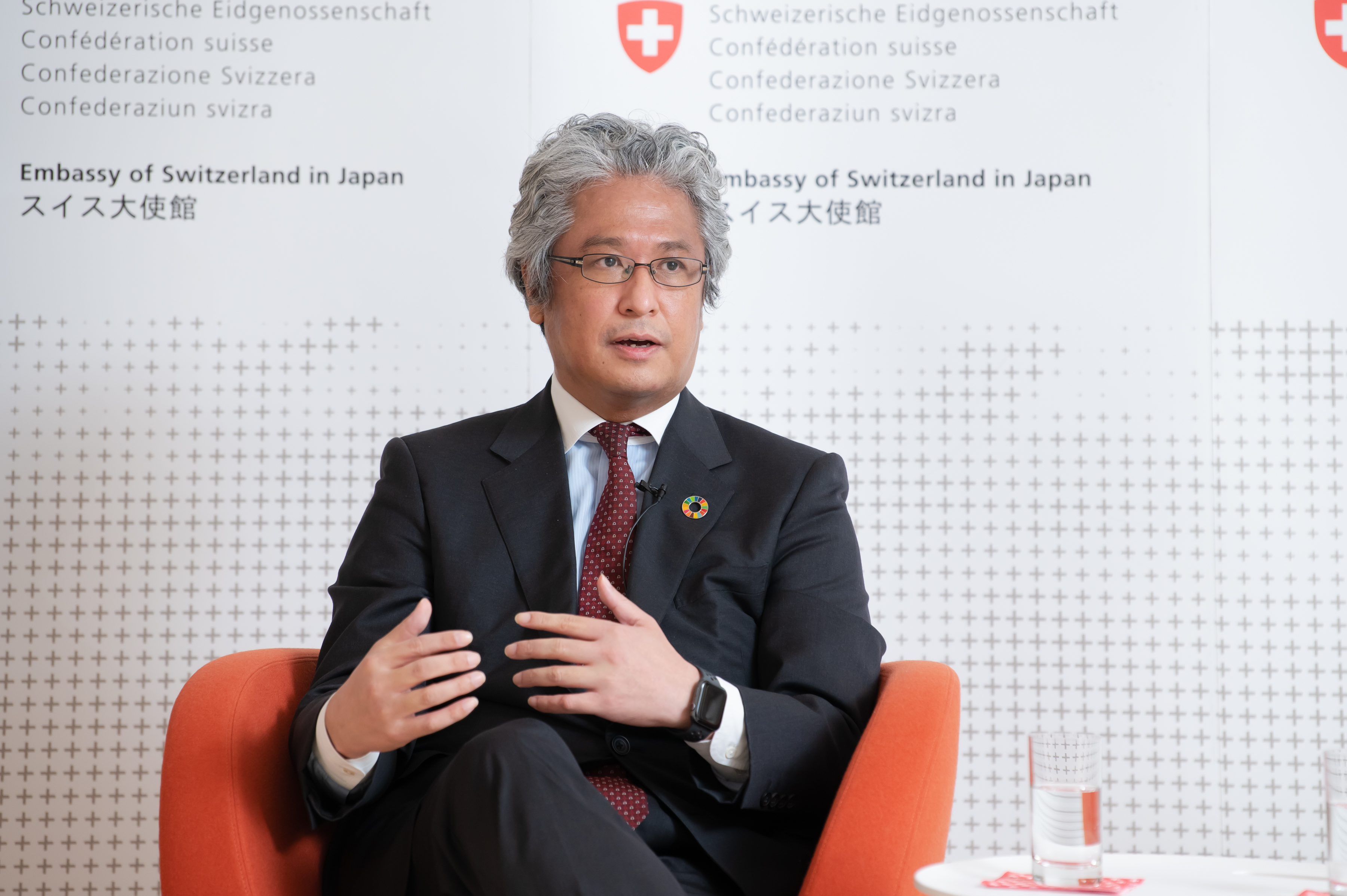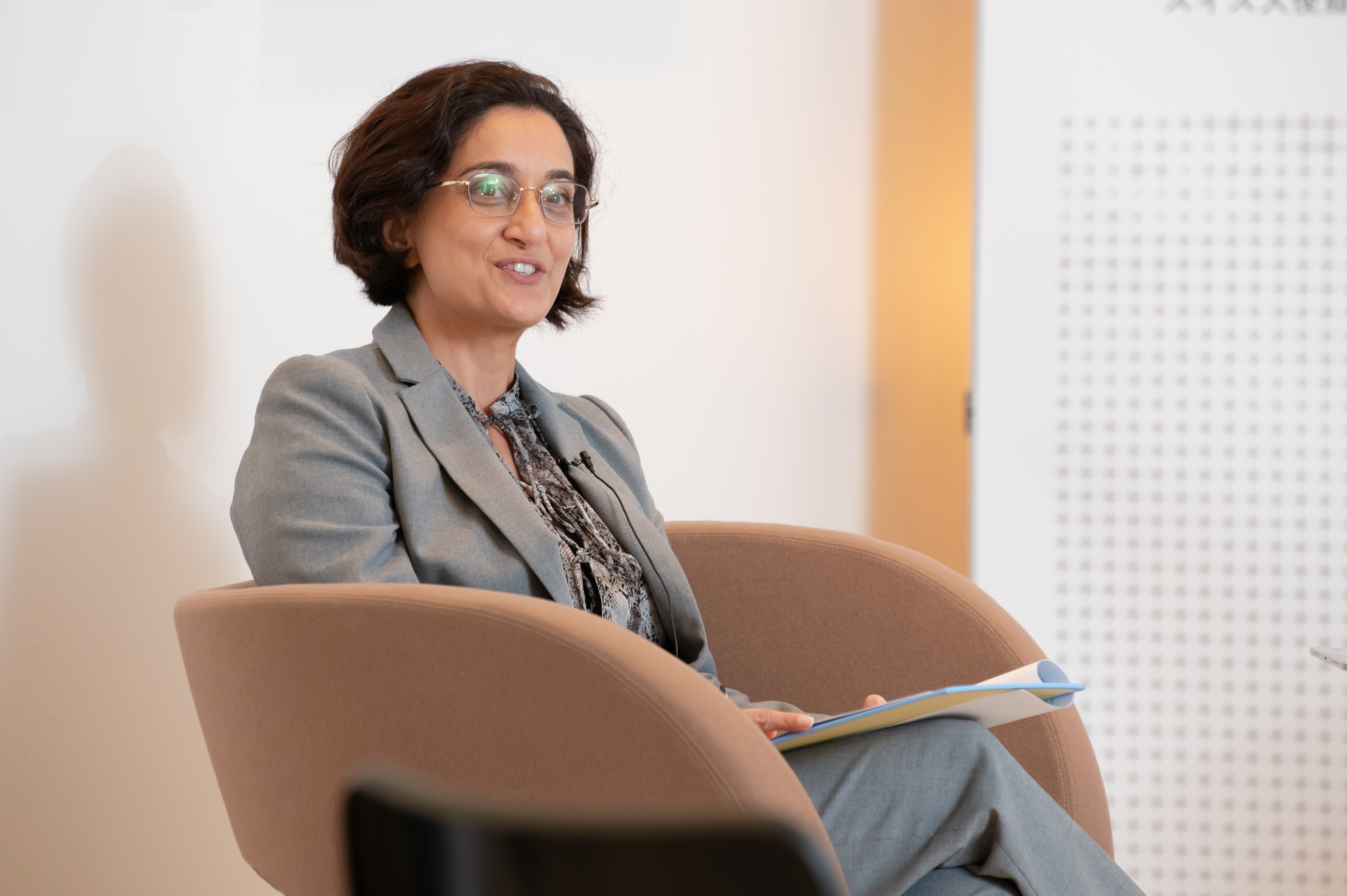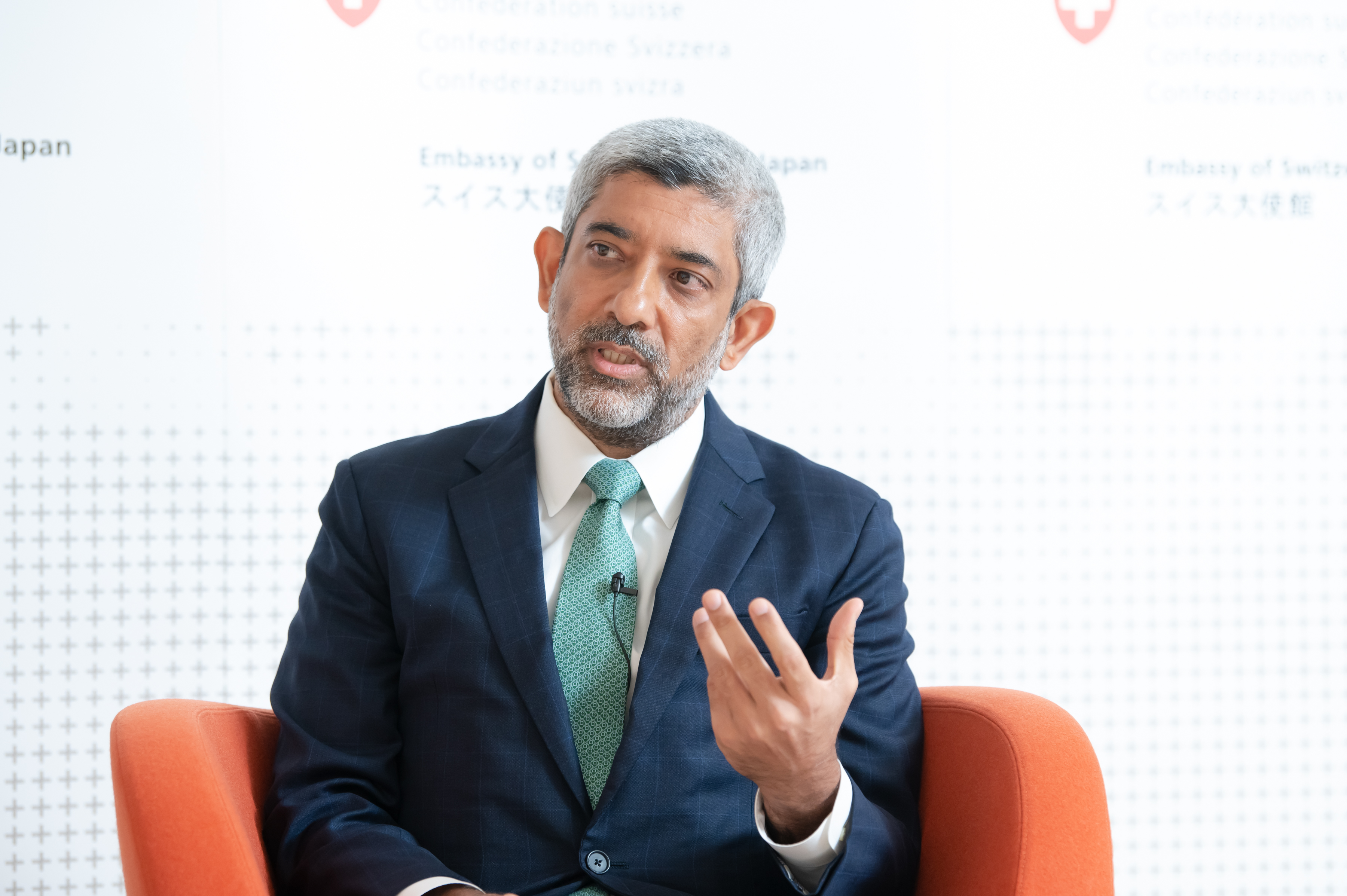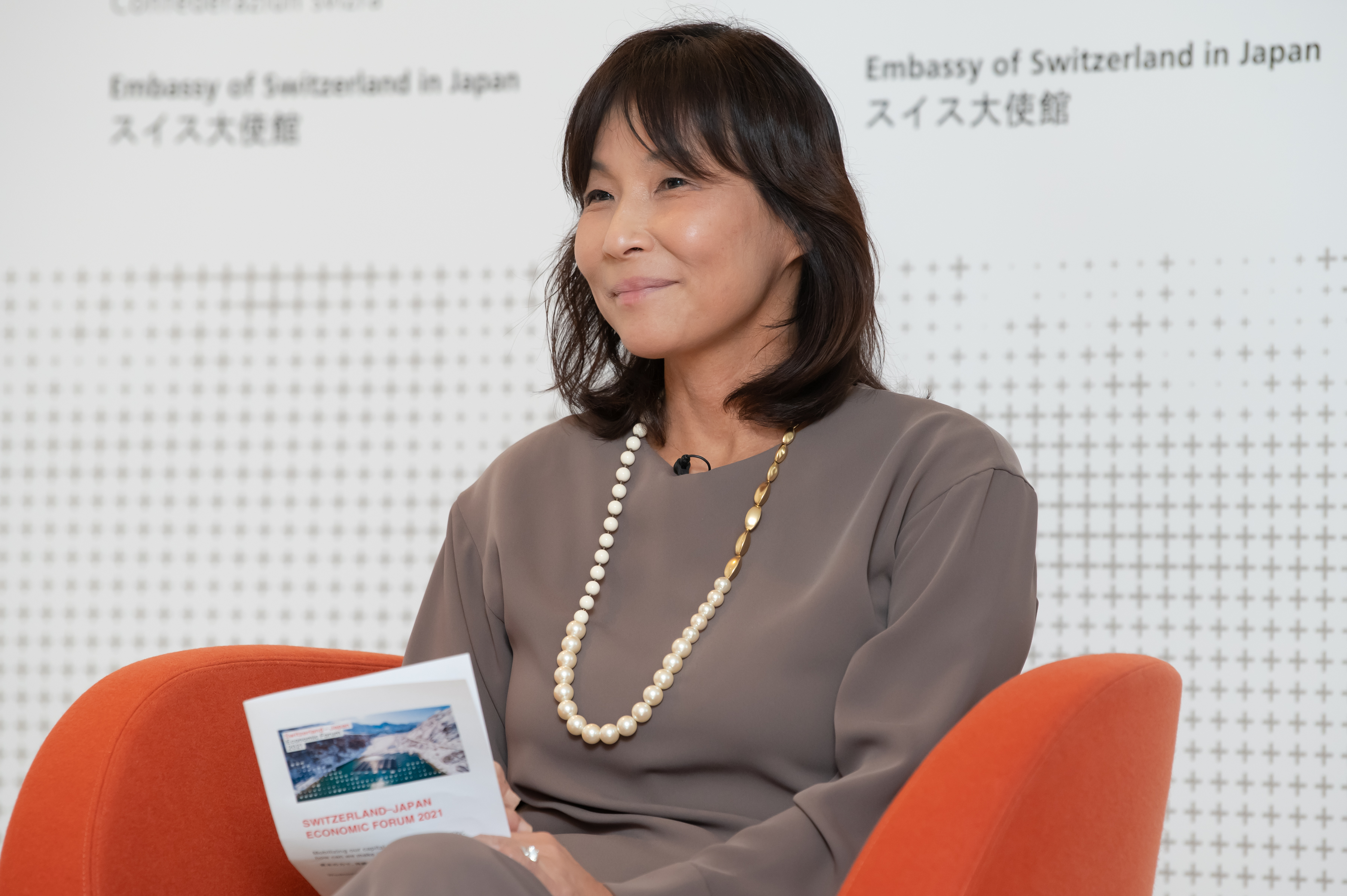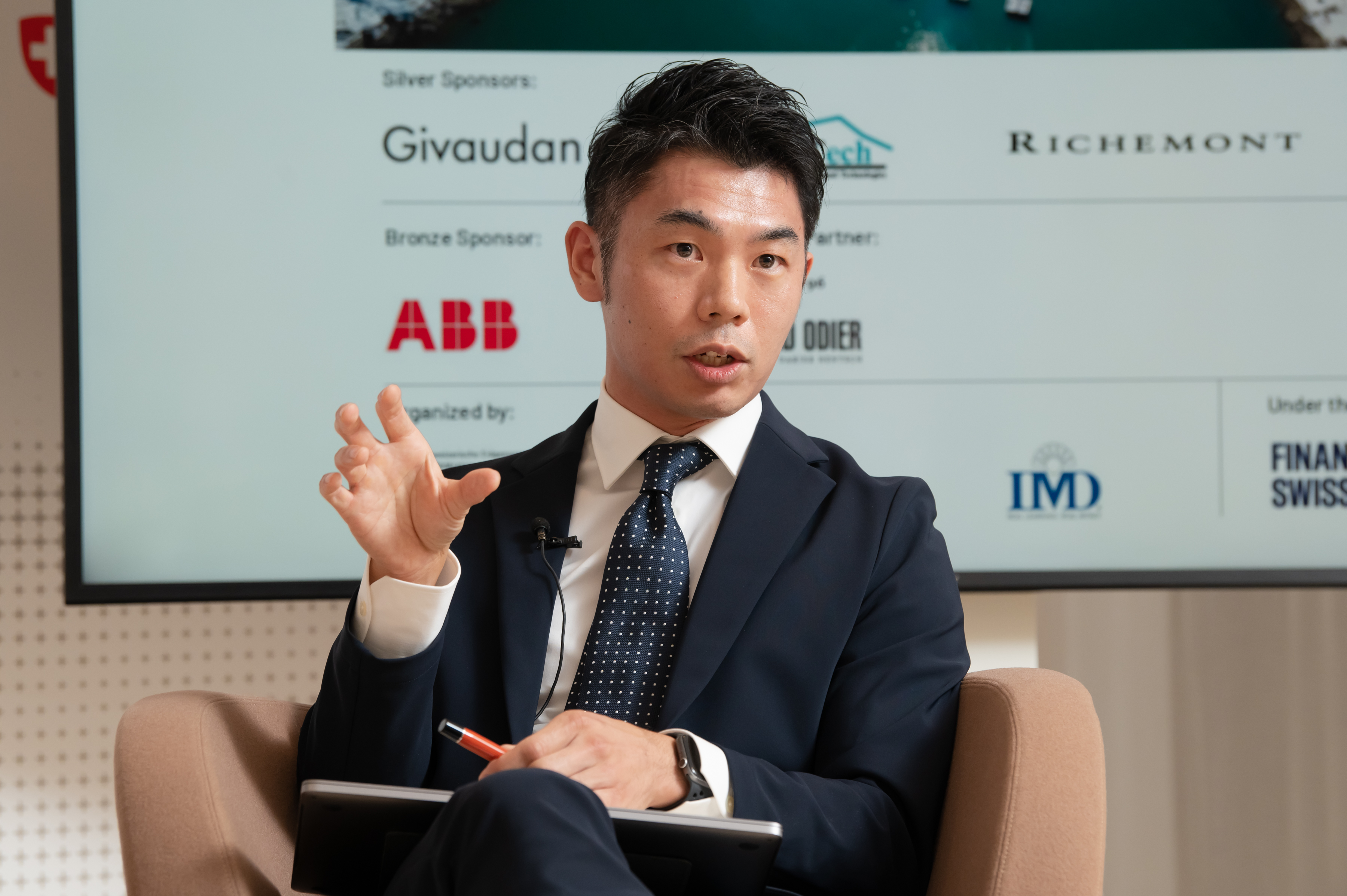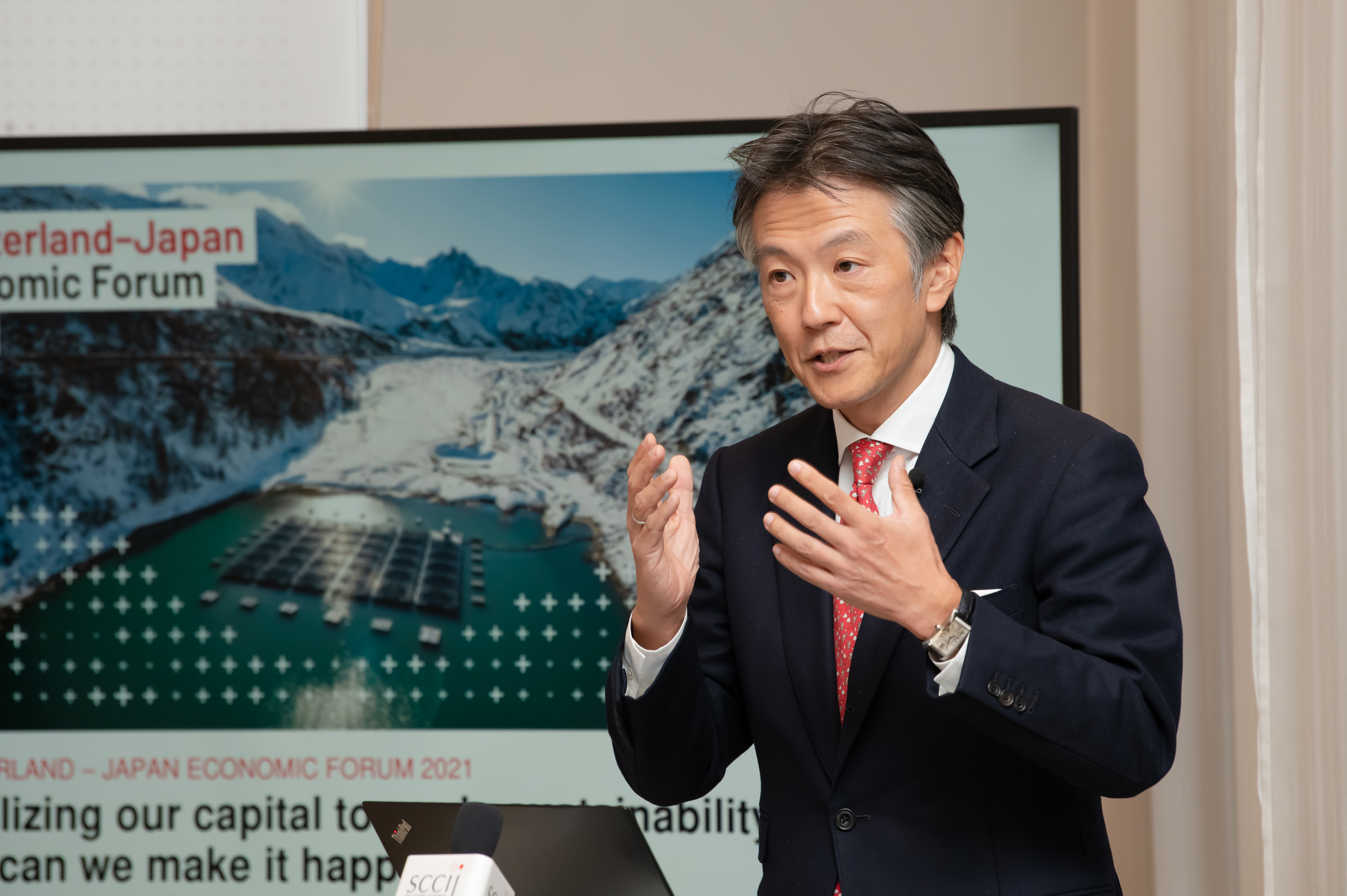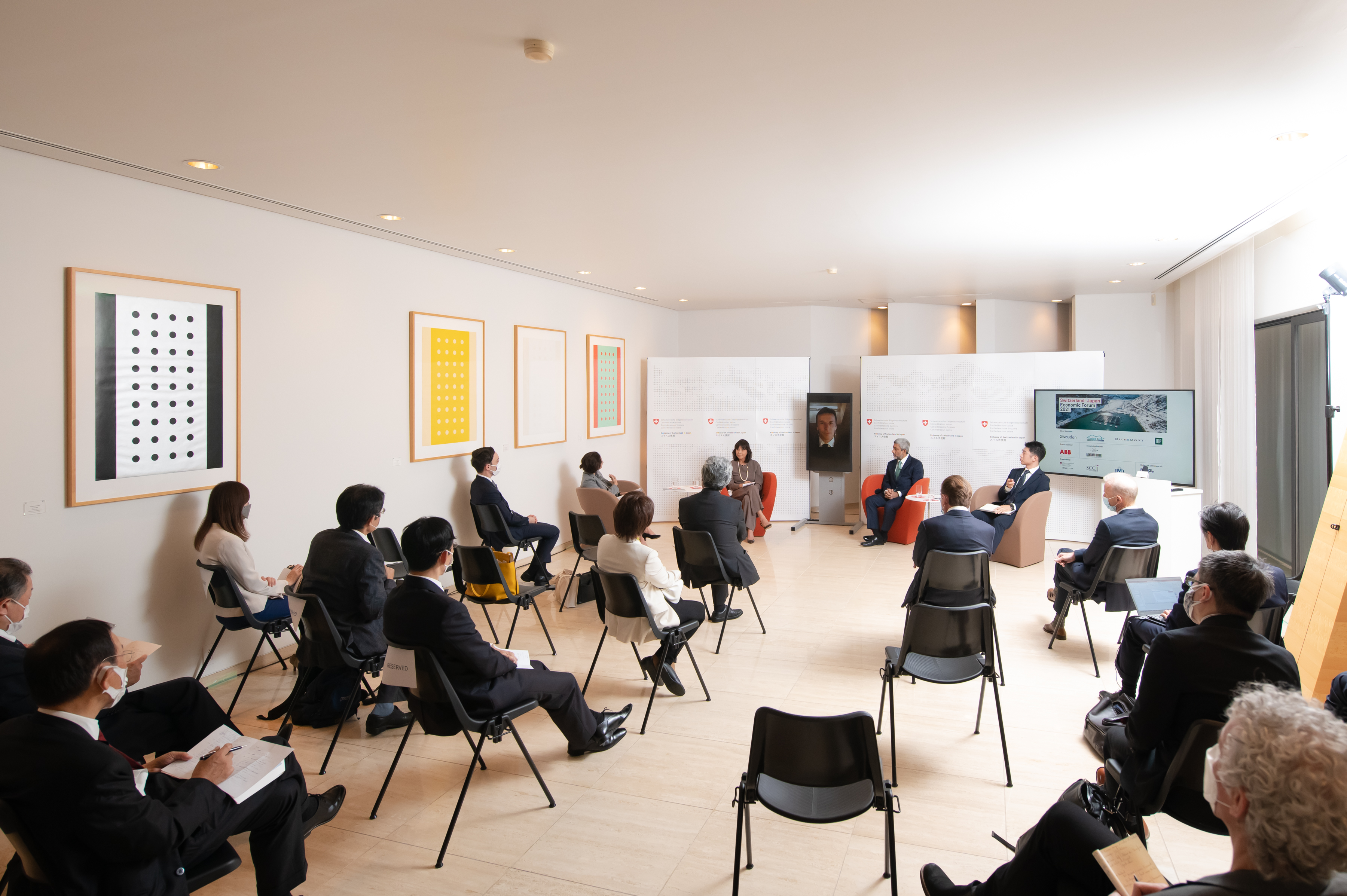Summary of Discussions
The 4th Switzerland-Japan Economic Forum took place on 20 October 2021. Just days before the COP26 in Glasgow, the Forum brought together Japanese and Swiss leaders in the domain of sustainable finance to discuss the following question: “Mobilizing our Capital towards Sustainability: How can we make it happen?”. The event was held online, with partners, sponsors and Japan-based speakers gathered at the Residence of the Swiss Ambassador to Japan.
Opening Remarks
The Forum was opened by Dr. Andreas Baum, Ambassador of Switzerland to Japan, and Andre Zimmermann, President of the Swiss Chamber of Commerce and Industry in Japan. They showed that both Japan and Switzerland have set ambitious targets, for instance to implement the Paris Agreement or to reach the Sustainable Development Goals. The financial sector can and must play a crucial role in achieving such objectives. In his remarks, Ambassador Baum focused on the role of government in creating the right framework conditions for the sector to fulfill its potential. In this context, he referred to the longstanding bilateral financial dialogue between Switzerland and Japan. Mr. Zimmermann stressed the need for private sector to gear up efforts in ESG (Environmental Social Governance) matters. He underlined that smart and responsible investment leads to financial return and benefits for all sides: the project, the investor, the financing institution and sustainability.
Keynote Speech
The keynote speech was held by Mr. Patrick Odier, Senior Managing Partner at Lombard Odier and President of Swiss Sustainable Finance. He argued that a profound economic transformation is underway, from a Wasteful, Idle, Lopsided and Dirty (WILD) economy to a Circular, Lean, Inclusive and Clean (CLIC™) economy. According to Mr. Odier, this “sustainability revolution” fundamentally alters the investment landscape and brings about “the single-largest investment opportunity of our lifetime”. This revolution is “moving at the speed of the digital revolution and with the scale of the industrial revolution.” It is driven by a combination of regulation, investor pressure, changing consumer behaviors and market forces. In terms of sustainable investment strategies, he argued for a nuanced approach and a forward-looking perspective. Rather than focusing on current footprints of companies by means of binary taxonomies, a strategy should identify companies that are fit for the transition. Temperature alignment methodologies, as developed by Lombard Odier, provide investors with forward looking insights on the decarbonization pathways companies in various sectoral and geographical contexts should follow to be in line with the Paris Agreement. In view of COP26, Mr. Odier expressed his expectations that governments need increased guidance on policy and increased carbon-pricing mechanisms. Referring to the need for all stakeholders to join forces, he also presented the upcoming event “Building Bridges“, which will bring together the finance industry, the United Nations, international organizations, NGOs, academia and government.
Panel 1 – “Shaping effective framework conditions: Ambitions and roadmap”
A first panel of government and academia representatives focused on shaping effective framework conditions for sustainable finance. It was moderated by Jonas Pulver, Head of the Communications and Culture Section at the Embassy of Switzerland in Japan.
Panel 2 – “Is ESG a path to Business Growth and Financial Return”
A second panel of diverse business representatives discussed sustainability as a concrete path to business growth and financial returns. It was moderated by Seema Bhayat, Representative Director and Head of Private Banking at Japan Lombard Odier Japan.
Concluding Remarks
After these substantial interventions and rich discussions, Mr. Takatsu Naoshi, Managing Partner at IMD Business School, ended the Forum with concluding remarks. He shared highlights and summarized essential points brought up by all speakers and panelists.
Noting that the advancement of sustainable finance requires many stakeholders to join forces, Mr. Takatsu also introduced the upcoming IMD report “Business Transformation and Climate Change”. The report finds that profound changes happen through systems collaboration, in which the industry moves to achieve objectives in sync with the public sector and civil society. In such an effort, systems leadership, meaning the capacity to see the larger system, to encourage reflection, and to shift the collective focus from reactive problem-solving to co-creating the future, is essential. For organizations willing to transform themselves, IMD has identified six practical recommendations: 1) Anchor a commitment on climate in the business purpose, 2) Set the tone from the top, 3) Integrate sustainability in the business strategy, 4) Add sustainability to each role, 5) Focus on issues that matter, 6) Change a few systems to facilitate transformation.
